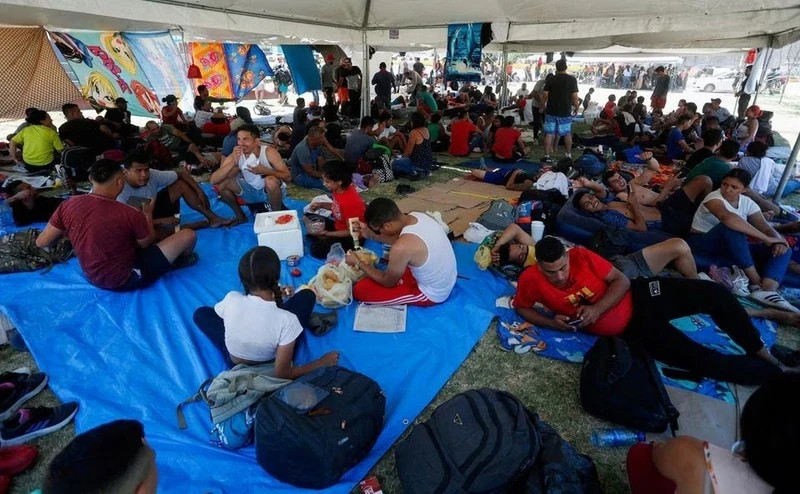After a resounding victory in Mexico's recent general election, President Claudia Sheinbaum is expected to face a long list of unfinished tasks from her predecessor, including dealing with the massive wave of migrants from Central American countries seeking to reach the US via Mexico.
According to the United Nations High Commissioner for Refugees (UNHCR), in 2023, more than 140,000 migrants applied for asylum in Mexico, not to mention thousands of people transiting the country to enter the US, which put Mexico in the top five countries with the highest number of asylum applications in the world.
The migration issue is considered one of the factors that influenced the results of the recent election in Mexico. Claudia Sheinbaum affirmed that she would continue the policies of her predecessor Andres Manuel Lopez Obrador, including the coordination with the origin countries of migrants, to create livelihoods for the poor to improve their living conditions.
Starting to solve the persistent and thorny migration issue, President Claudia Sheinbaum had separate discussions with US Vice President Kamala Harris and White House Homeland Security Advisor Liz Sherwood-Randall. Accordingly, the two sides pledged to strengthen close cooperation to address the root causes of the migration problem.
With the policy of building “walls of prosperity” to block the wave of migration right from the origin, the Mexican Government has disbursed 108.3 million USD for the “Sowing Seeds of Life” programme, including the organisation of vocational training courses, projects to reforest barren land for agricultural cultivation, and the cooperation with businesses to create jobs for people in Central American countries.
At least 71,000 people in Honduras, Colombia, Venezuela, Haiti, El Salvador, Costa Rica, Belize, Panama and Guatemala benefit from this programme. Previously, several similar projects were carried out by the Mexican Government, in collaboration with the countries in the region, such as the programmes “Youth Building the Future” and “Sowing Opportunities”.
The issues of migration, immigration, and border security have long been a headache for US Presidents and have become an important part of their election platforms. According to a poll conducted by Gallup in February 2024, more and more Americans believe that immigration is the most important issue facing the US. Specifically, 28% of surveyed Americans said that immigration is currently the most important issue for the US. This rate increased sharply from 9% in the poll in August 2023.
Recently, President Joe Biden signed an executive order to temporarily suspend the review and approval of asylum applications, if the average number of immigrants crossing the border into the US exceeds 2,500 per day. This tough move was made in the context of the US administration being under a lot of political pressure regarding the migrant caravans at the Mexican border, with only a few months away from the US presidential election.
Meanwhile, the wave of migration in the Americas still shows no signs of abating. According to the UNHCR, at least 22 million people in the Americas have been forced to leave their homes, due to poverty and conflicts, making it difficult for humanitarian relief activities and exacerbating the migration situation on the continent. The International Rescue Committee (IRC) warned that thousands of people could be forced to leave Ecuador and Haiti in 2024, due to humanitarian crises, escalating violence, increasing poverty and the impact of climate change.
The massive influx of migrants reflects the urgent need to improve people's lives in their home countries. This sustainable approach, requires resources and concerted action, not only from the US and Mexico but also from many other countries in the region.
















